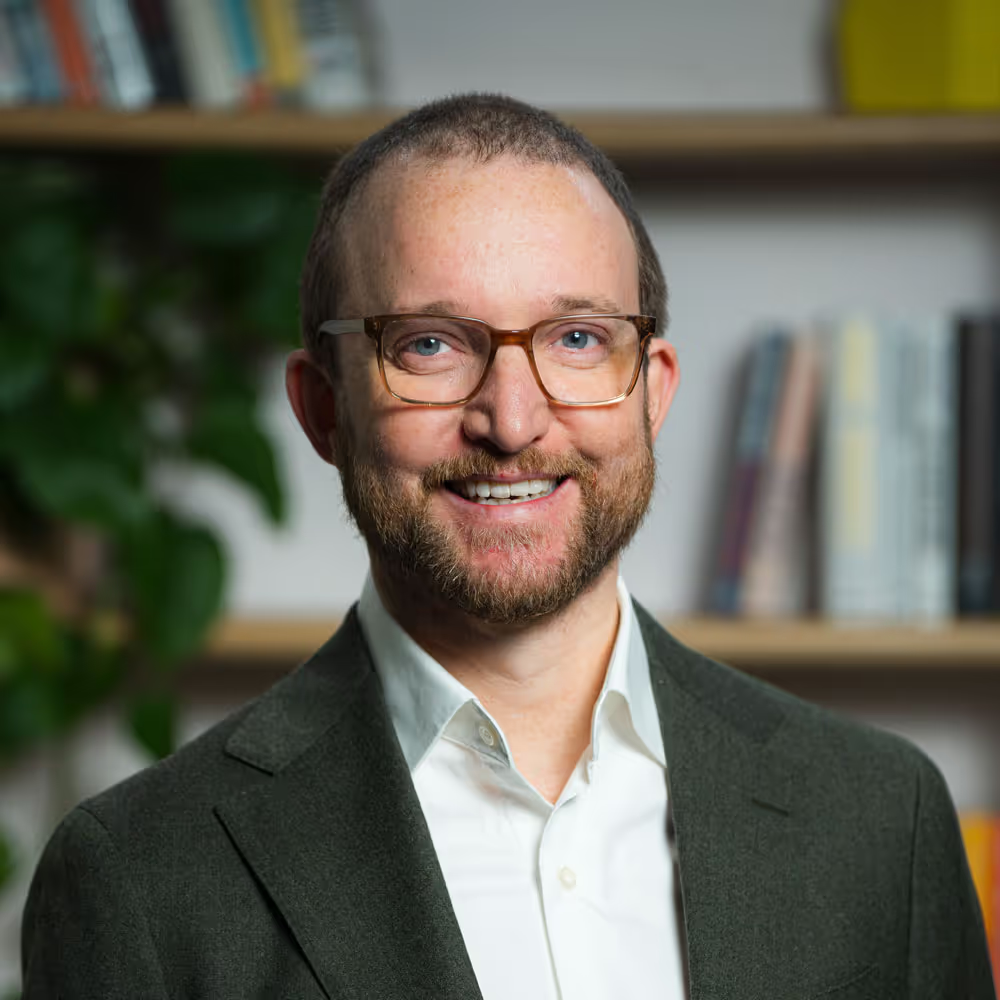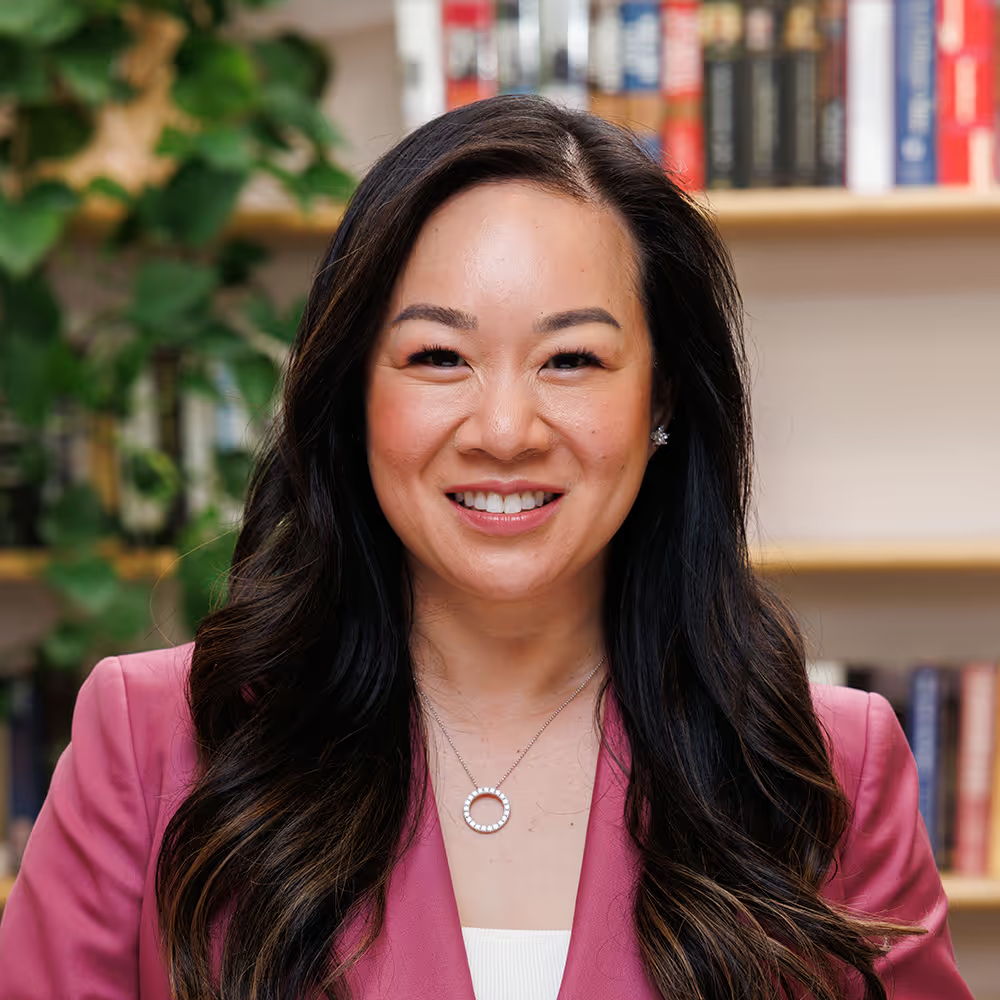An interview with Elliot Stein – National Director of Corporate Affairs at St Vincent’s
29
January
2025
1
min read

In the third edition of the York Park Group Interview Series, we had the pleasure of sitting down with Elliot Stein, National Director of Corporate Affairs and Public Policy at St Vincent’s Health Australia.
Elliot Stein is National Director of Corporate Affairs and Public Policy at St Vincent’s Health Australia. He is also a Strategic Advisor to The Susan McKinnon Foundation. Prior to this Elliot was an Advisor and Chief of Staff to politicians and Ministers across Federal and State Parliaments. He has also previously worked at the Australian Consulate-General in New York, UNICEF and WPP Media.

What does the role of corporate affairs generally mean for you, and what are the principles that have guided your approach to reputation across the various sectors you’ve worked in?
For me, corporate affairs is all about having good, strong relationships with the people you need to in order to advance the goals of your organisation.
Any organisation that wants to be effective needs to know first and foremost what it is they want to achieve, and then who it is that they need to unlock those goals, and finally to understand where those people are coming from – no one exists in a vacuum.
If you put all that together - your goals, your stakeholders, their needs - you’ll have a really effective corporate affairs strategy.
There’ve been some real shifts in politics and attitudes around the world, and some organisations are asking whether they should seek to match that shift? My response to that is: ‘Just focus on doing what you do well’. What do you think?
A word I’ve heard used a lot since 2016 in the reaction to the first election of Donald Trump is ‘authenticity’– that leaders and business need to be more authentic. That to me is a fancy way of just saying, know what your values are, live by them and go and execute against them.
To your point about doing business well: I agree. Be unapologetic about what your goals are and what you’re seeking to do. That’s how you meet the moment and meet where the public expectations are, rather than an approach that displays as confected.
How important do you think building, maintaining and managing reputation is? And what do you think are the keys to success?
Relationships and reputation are really what gets you through achieving any of your goals. Whether you’re a not-for-profit, a listed organisation, or a government.
The framework that I’ve been thinking about lately quite deeply is trust versus risk.
As an organisation, are you seeking to increase the trust that you have with your people, customers, stakeholders and the public? Or are you just seeking to minimise the risk to your organisation?
If you can look into yourself and answer that question, then that will drive how you operate. Neither is more right than the other but understanding that framework and where you are trying to operate within it, is how you will achieve success.
I think organisations go awry sometimes when they’re trying to do and be all things to all people and attempting to operate in one way but talk another.
It comes back to knowing your values, living by them and operating in that way.
2024 was the year of elections, with many themes resulting from it. How much consideration do you give to what’s happening overseas and to what you do day-to-day?
Last year was the year of democracy, absolutely, and the Financial Times has done a lot of good reporting on this. Of the 12 western democracies that went to the ballot – and you can add India and Japan to that list – the incumbent in every single election lost vote share. It was the first time in 120 years that this occurred; the average was about a seven per cent loss in vote share.
Globally, over those 120 years, we’ve gone through inflation shocks or economic shocks before – but there was never a uniform across-the-board decline in vote share like what we saw last year.
So I do I think something more fundamental is happening than just a reaction to cost of living or immediate pressures. The big trend is definitely away from centrism, towards populism.
We’ve talked for a long time about the loss of trust in institutions, and that’s flowed through to corporations and large employers as well. The quirk I think we’ve discovered is that centrist parties or progressive movements once aimed to change those institutions and reform them for the benefit of the electorate. However, in reaction to the populist wave they have instead felt the need to be a ballast for those institutions and they got themselves seemingly wedded to those institutions that needed reform, which is not resonating with the public.
What will it take to change the mindset of the general population when it comes to trust, on both the government and corporate side?
There’s been a big debate on what is the most effective way to make change – that could be whether it’s how you engage with your customer base and the success of your business, or it could be how government is forming and implementing policy.
There’s always been a tension between incrementalism and mission-based policy. There is the approach of getting on and doing enough small things to add up to one big thing– also spoken about as radical incrementalism. Or there’s the model of mission-based which is to articulate and then shoot for one big thing and fundamentally go after it.
This is the Torsten Bell [British Labour MP] versus the Mariana Mazzucato [economist] tension that is playing out in the UK. The former supports radical incrementalism whereas the latter advocates for missions.
In my eyes, what we’re seeing is that there is a far greater appetite, in both the electorate and among consumers more broadly, for a far bigger and more mission-based approach to the challenges we face. Even the radical incrementalism is seen as nibbling around the edges of the big fundamental problems.
Some quick fire questions: You’re an avid reader… what book do you recommend everyone working in corporate affairs reads this year?
A great one I read over the summer was ‘Growth’, by Daniel Susskind, which took on the question of how we measure GDP or growth and whether that is the best metric for managing and running an economy especially in light of the climate crisis.
You live in regional NSW and travel a lot for work. Why do you choose to stay in regional NSW?
Ah! Thankyou! You’ve given me an excuse to talk about my favourite topic, which is Thirroul.
I’m there because it’s home. My great grandfather moved to Thirroul when he got transferred there from the Junee rail depot. So, every day that I commute to work, I get to catch the same train that both he and my grandfather drove. That’s something very special to me.
I spent a lot of time living away from it and living overseas. When I came back originally to hide out from COVID, I fell back in love with the place and discovered it really filled a missing part of me. It’s very special.
Who is a political or corporate leader that you admire or look up to in Australia?
I’ve been fortunate enough, like you, to work with a lot of really interesting and exciting leaders.
One person I think about a lot is Yael Stone. She was an actor in Hollywood, in ‘Orange is the New Black’, but in 2019 she relocated back to the Illawarra with her young family and founded asocial enterprise called ‘Hi Neighbour’.
It provides scholarships to workers to retrain in new energy jobs and it does so through a loan program of installing solar panels on roofs and using the interest gained from the loans for a scholarship fund.
It’s really important in our region – which is called the coal coast for a reason – and it’s a real practical contribution to the climate crisis. The way she has pivoted her career to support something cares deeply about and helps the energy transition is unbelievably inspiring.
What is the best advice you were ever given, and did you follow it?
My dad always taught me to do good things at work, and I get to do that every day at St Vincent’s.
What do you do in your spare time?
When I’m at home I’m always out checking the traps – which is what my grandfather called going and watching the surf.
Reading and movies are the big passions for me. I’m constantly trying to inject more fiction into my reading diet, I had a blitz over summer and that’s been really fulfilling.
I do try and keep up on all the book and movie awards contenders as a bit of a project and I’m slowly chipping away at some of those more classical movies as well.
10
February
2026

Regional aviation in Australia: The key drivers behind current government reviews
Read news article
10
February
2026

Regional aviation in Australia: The key drivers behind current government reviews
Download White Paper
4
February
2026
.webp)
York Park Group launches transaction communications service
Read news article
4
February
2026
.webp)
York Park Group launches transaction communications service
Download White Paper






